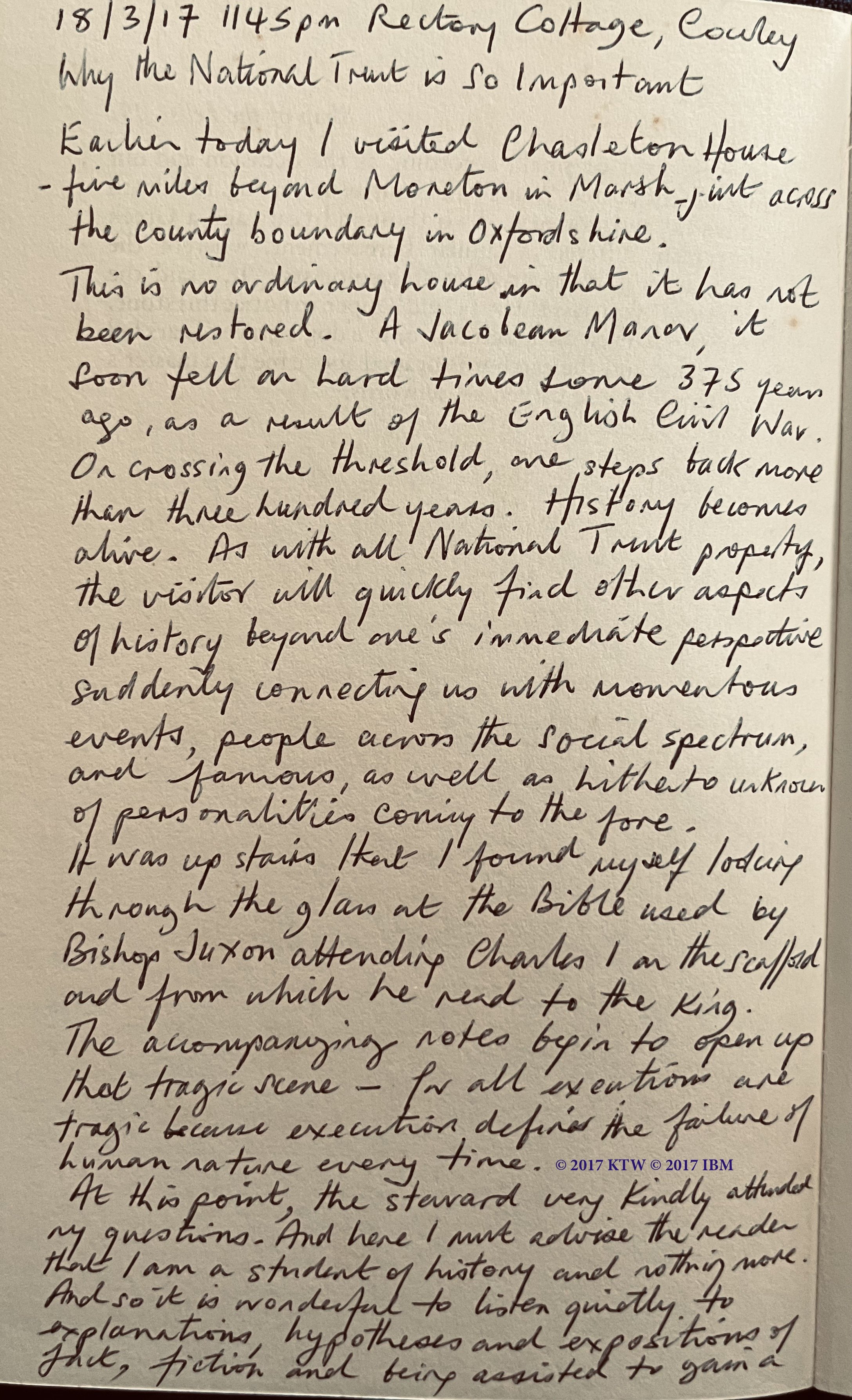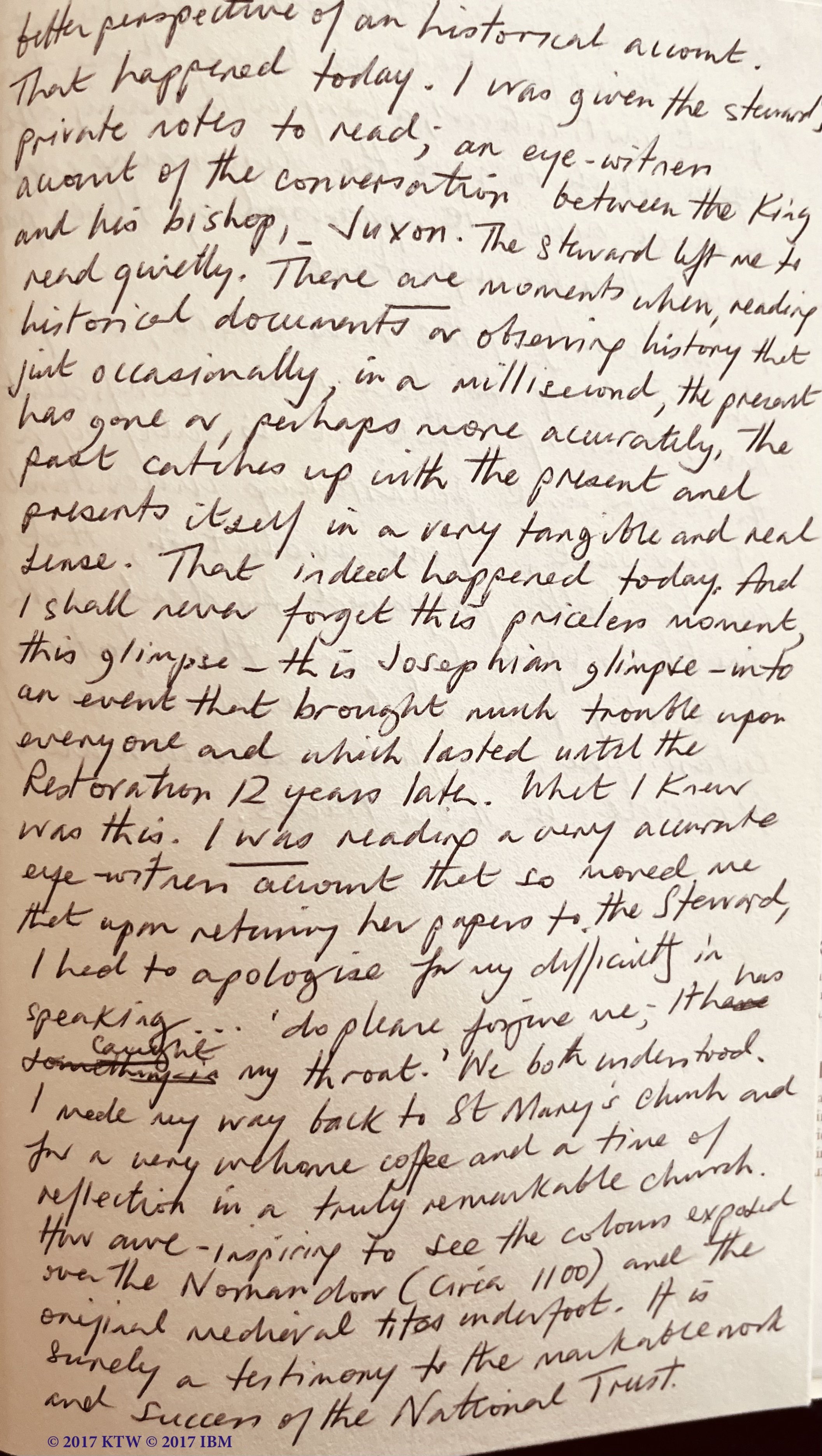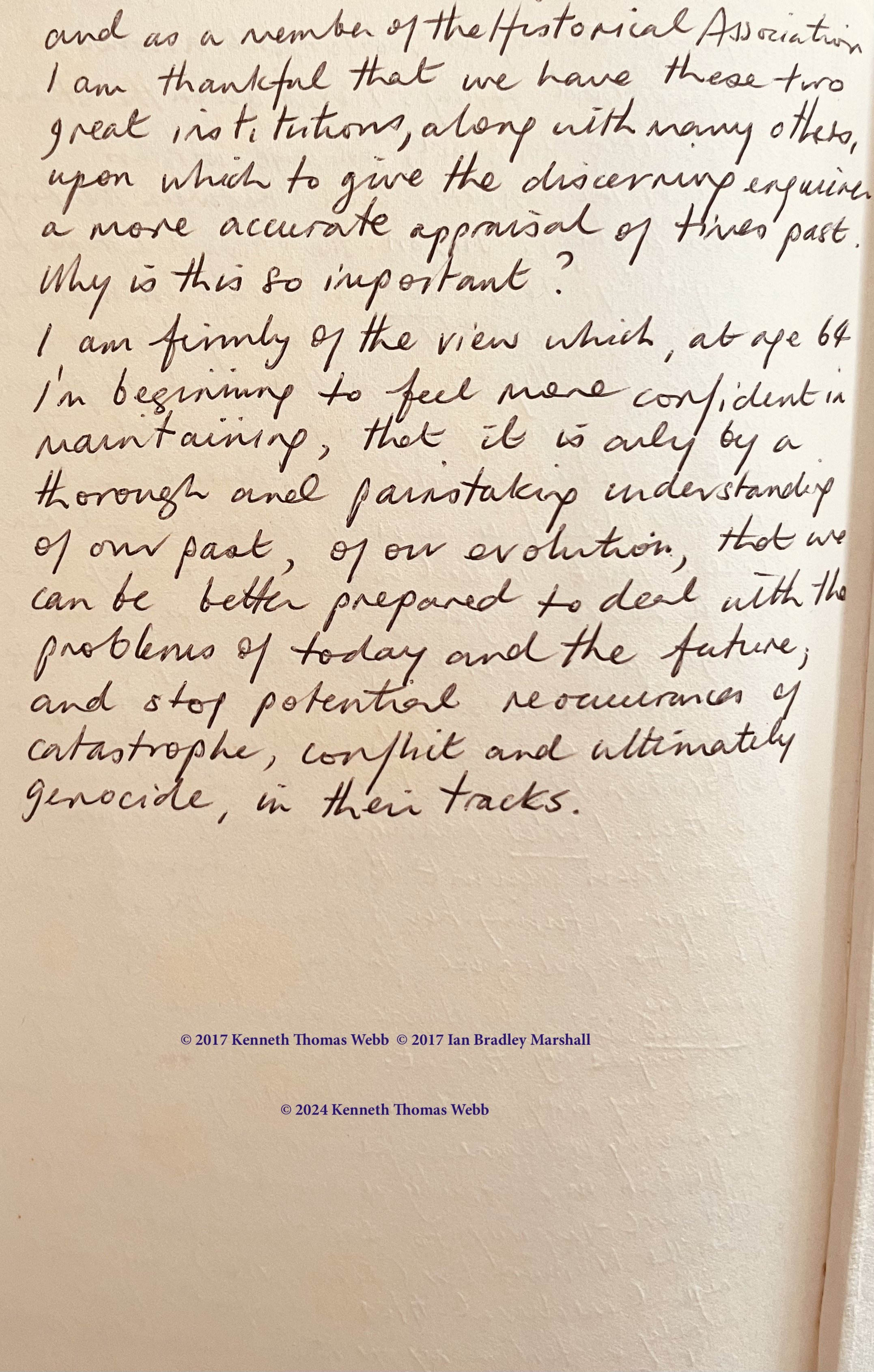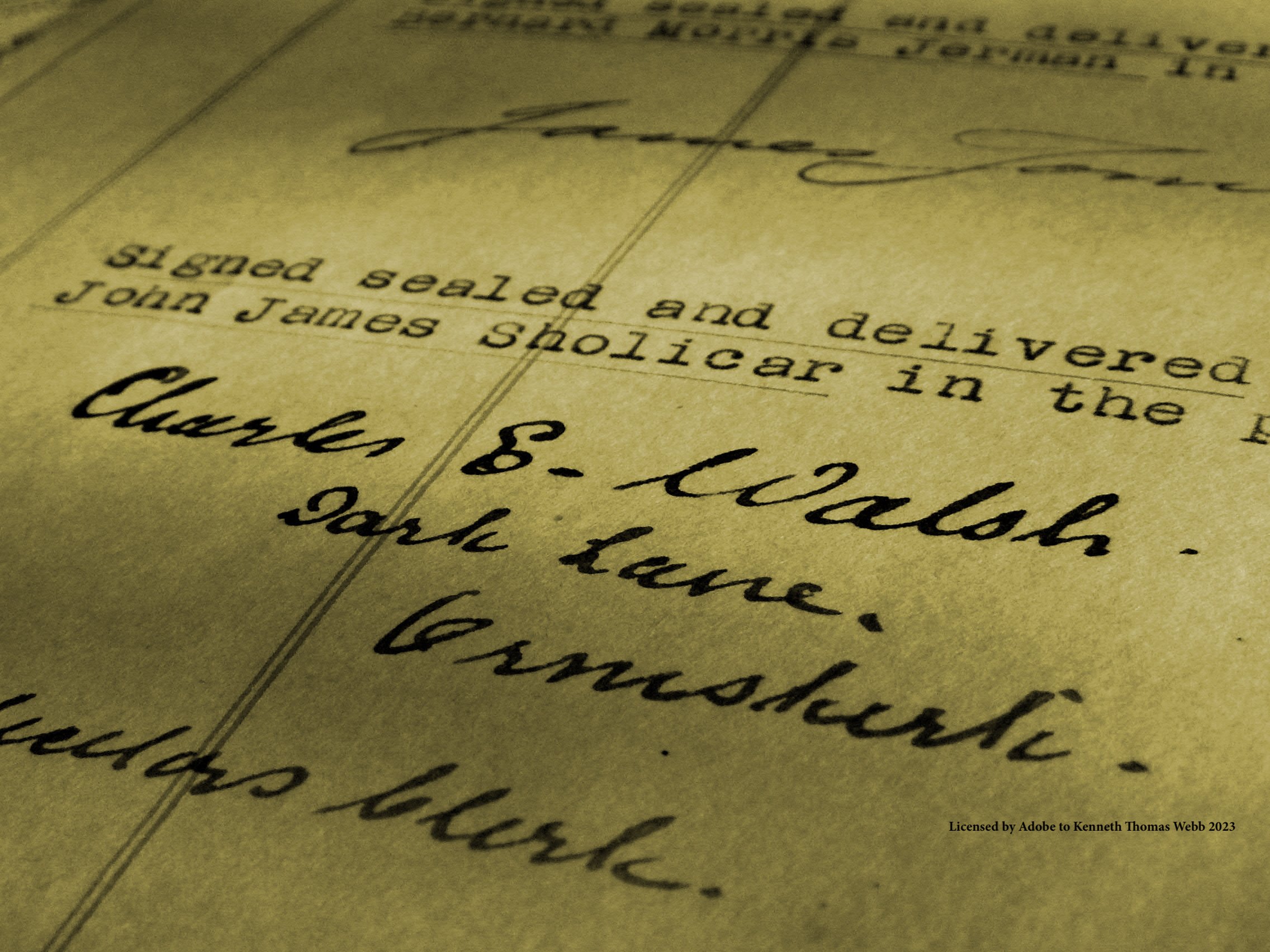MƒH 10 Chastleton House ~ Why the National Trust is So Important

Moments from History
Chastleton House ~ Why the National Trust is So Important
Written on Saturday 18 March 2017
in a cottage in the heart of the Cotswolds
in Gloucestershire
Earlier today, I visited Chastleton House five miles beyond Morton in Marsh, just across the County boundary in Oxfordshire.
This is no ordinary house in that it has not been restored. A jab and Manor, it soon fell on hard times some 375 years ago, as a result of the English Civil War.
On crossing the threshold, one steps back more than 300 years. History becomes alive. As with all National Trust property, the visitor will quickly find other aspects of history beyond ones, immediate perspective, suddenly connecting us with momentous events, people across the social spectrum, and famous as well as Heather to unknown personalities coming to the fore.
It was upstairs that I found myself looking through the glass at the Bible, used by Bishop Juxon attending Charles the first on the scaffold, and from which he read to the king. The accompanying notes begin to open up that tragic scene – for all executions are tragic because execution defines the failure of human nature every time.
Chastleton House, Oxfordshire
King Charles I was held here under house arrest until
his return to London and, eventually, his beheading.
Tyranny was released upon a hapless people and which
lasted for twelve years until the return, to great relief, of
King Charles II.
At this point, the steward, very kindly, my questions. And here, I must advise the reader that I am only a student of history, nothing more. Thus, it is wonderful to listen quietly to explanations, hypotheses, and expositions, of fact, fiction, myth, deliberate lies, fabrications of the truth, or weaving into the factual narrative thoughts and suspicions that then quietly remove ‘what really happened’. All of this enables me to gain a better perspective of an historical account.
That happened today. I was given the steward’s private notes to read; an eyewitness account of the conversation between the King and his Bishop, Juxon. The steward left me to read quietly.
There are moments when, reading historical, documents, or observing history, that just occasionally, in a millisecond, the present has gone or, perhaps more accurately, the past, catches up with the present and presents itself in a very tangible and real sense. That indeed happened today.
And I shall never forget this priceless moment, this glimpse, this Josephian glimpse, into an event that brought much trouble upon everyone, and which lasted until the restoration twelve years later. What I know was this.
I was reading a very accurate eyewitness account that so moved me that upon returning her papers to the Steward, I had to apologise for my difficulty in speaking… “Please forgive me; it has caught my throat.“
We both understood.
I made my way back to Saint Mary’s Church, and for a very welcome coffee and a time of reflection in a truly remarkable church. How awe-inspiring to see the colours exposed over the main Norman Portico (circa 1100) and the original mediaeval tiles underfoot.
It is surely a testimony to the remarkable work and success of the National Trust and as a member of the Historical Association I am thankful that we have these two great institutions, along with many others, upon which to give the discerning enquirer a more accurate appraisal of times past.
Why is this so important?
I am firmly of the view, which, at age 64, I am beginning to feel more confident in maintaining, that it is only by a thorough and painstaking understanding of our past, of our evolution, that we can be better prepared to deal with the problems of today and the future; and to stop potential recurrences of catastrophe, conflict, and ultimately, genocide, in their tracks.
April 2024
The gallery shows my original handwritten note dated 18 March 2017, just before midnight. At that time, I knew that the world was becoming more dangerous, although I could not say with accuracy, why. At the time, nationalism or populism (the politically correct word for fascism) was disrupting many well established western democracies. That was serious.
I most certainly did not foresee the War in Ukraine in 2022 notwithstanding the illegal annexation of the Crimea by Russia on 18 March 2014, I did not foresee the destruction of Hong Kong as a western democracy by China, I certainly did not foresee the genocide that is now the hallmark of the Israel and Gaza War in 2024.
We live in a very dangerous world.
We are likely to have a major war on the European continent within three to five years.
I have learned something else since 2017, and that is that any and every politician does not truly represent the constituents who voted them into Office. Politicians tend to say what they think their constituents want to hear. And politicians are well known for saying that black is white or white is black. But this is not a new phenomenon. It is part of human nature. It is ever present, and we are no more civilised today than the civilisations that came and went many thousands of years ago.
6 April 2024
All Rights Reserved
LIVERPOOL
© 2024 Kenneth Thomas Webb
The main image is a relief taken from a principal photograph of Chastleton House that appears on the National Trust Website, and the Trust’s link appears below, and I confirm that I am a fully paid member of the National Trust.
Digital Artwork by © 2024 KTW © 2024 IBM unless otherwise credited
Ken Webb is a writer and proofreader. His website, kennwebb.com, showcases his work as a writer, blogger and podcaster, resting on his successive careers as a police officer, progressing to a junior lawyer in succession and trusts as a Fellow of the Institute of Legal Executives, a retired officer with the Royal Air Force Volunteer Reserve, and latterly, for three years, the owner and editor of two lifestyle magazines in Liverpool.
He also just handed over a successful two year chairmanship in Gloucestershire with Cheltenham Regency Probus.
Pandemic aside, he spends his time equally between his city, Liverpool, and the county of his birth, Gloucestershire.
In this fast-paced present age, proof-reading is essential. And this skill also occasionally leads to copy-editing writers’ manuscripts for submission to publishers and also student and post graduate dissertations.









